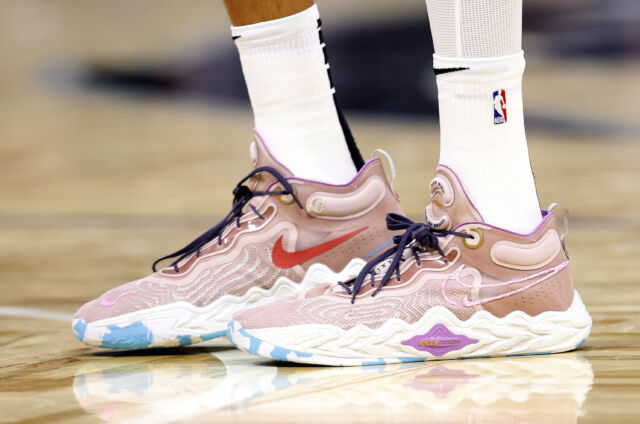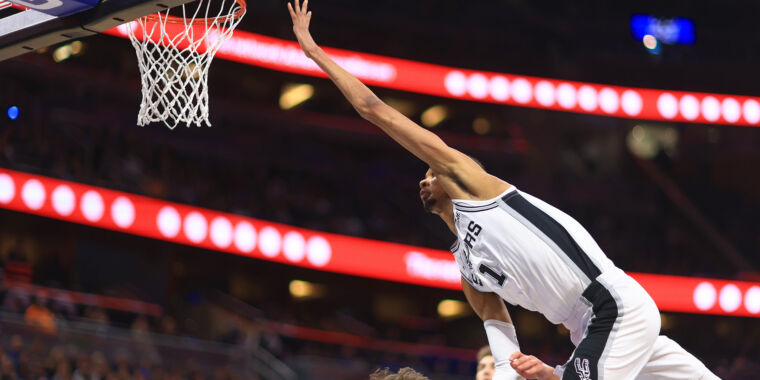The NBA’s tallest rookie is 7 feet 4 inches tall with an 8-foot wingspan, but last year, a series of video clips highlighted his surprisingly nimble, and often shoeless, feet. In one clip, he’s pressing knees and ankles together while wiggling his toes and hopping forward. In another, he’s bear crawling along the baseline. And in yet another, his right heel and left toes are gliding in opposite directions, gym music pounding in the background, as he eases into the splits.
Victor Wembanyama (pronounced wem-ben-YAH-muh), was selected first in last June’s NBA draft at the age of 19. By then, he had played four years of professional basketball in his native France. With a preternatural blend of size, athleticism, and skill, Wembanyama is routinely described as a generational talent. And if the toe-exercise videos are any indication, his trainers appear determined to protect that talent: Sports medicine experts say that long limbs and feet—Wembanyama’s shoe size is 20.5—confer potential physical vulnerabilities.
Leg, arm, and foot bones all function like levers, and the longer they are, the more force is needed to stabilize them. Tall athletes may find it harder to control their movement as they land from a jump or quickly shift direction. Seven-footers, of course, aren’t the only athletes who get hurt while playing. Across the NBA, injuries are on the rise, with knee, ankle, and foot problems leading the way. Anecdotally, physicians and trainers also report seeing children, some as young as 10 years old, with severe sports-related injuries and chronic wear-and-tear that was once seen mainly in adults.
All of this has fueled a small but growing body of scientific research into basketball and other sports-related injuries. In biomechanics laboratories, experts are creating detailed assessments of how players move on the court. Epidemiologists are poring over reams of data. And NBA teams have been experimenting with new approaches for player safety, including an emphasis on load management, which seeks to optimize an athlete’s ratio of stress to rest.
Much of this science is still unsettled, and there is no foolproof method for injury prevention. But experts who spoke with Undark said there is a solid evidence base for specific warm-up programs, stretches, and exercises that reduce injuries. The findings have not been fully disseminated and implemented. Yet, there’s clearly interest in the topic.

Wembanyama’s barefoot calisthenics have inspired explanatory videos with titles like “Victor Wembanyama’s Weird Toe Workout EXPLAINED!” as well as comments and replies asserting that such exercises could have benefitted previous generations of tall players. “This is smart they’re trying to keep his feet healthy,” wrote a New York Knicks superfan on X, formerly known as Twitter. “[Too] many big men have gone down with foot injuries.”
Danny Seidman, a Michigan-based sports medicine physician (and self-described NBA fanatic), said he’s glad the videos went viral. They got people talking about injury prevention, which has come a long way over the past few decades. “It’s sad for me to see previous athletes in their 50s and 60s who are limping around or hunched over,” said Seidman. “We think we can avoid those sorts of things now.”










